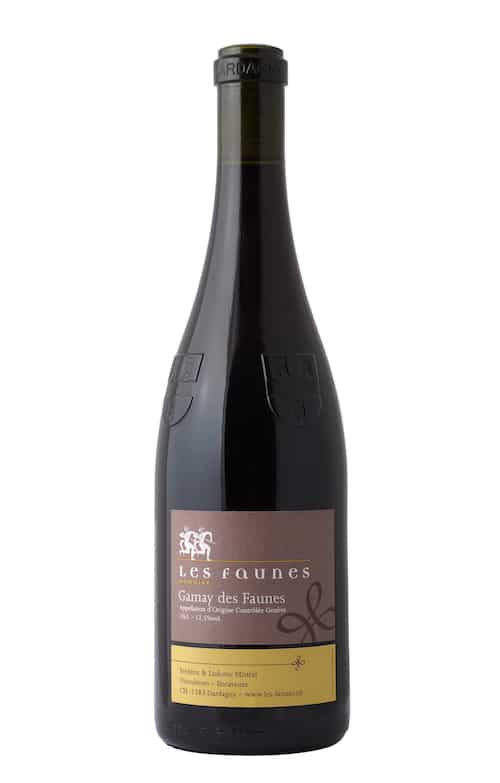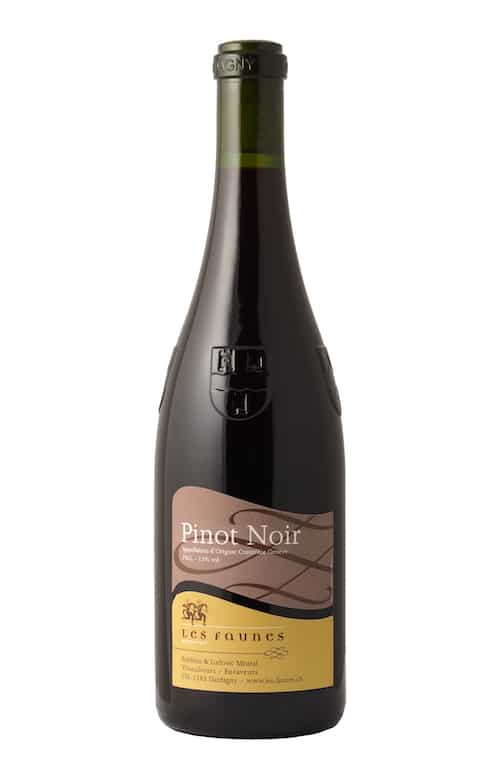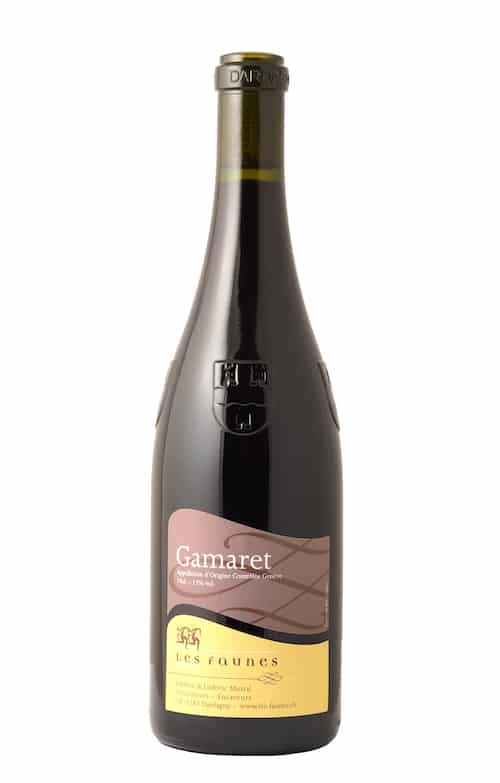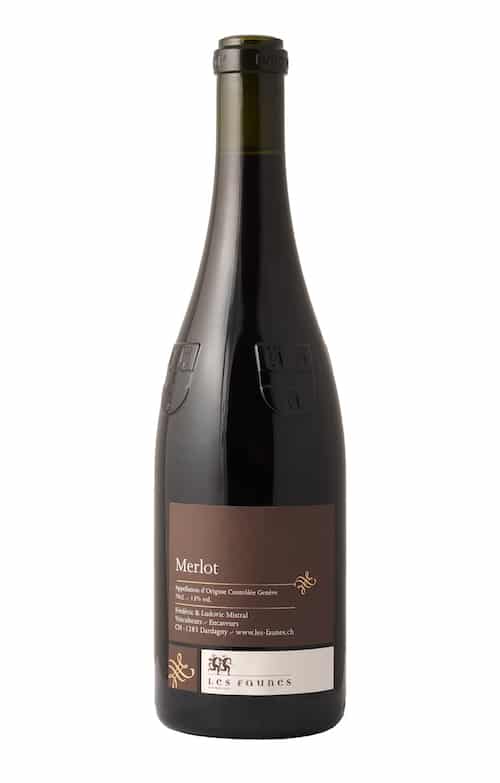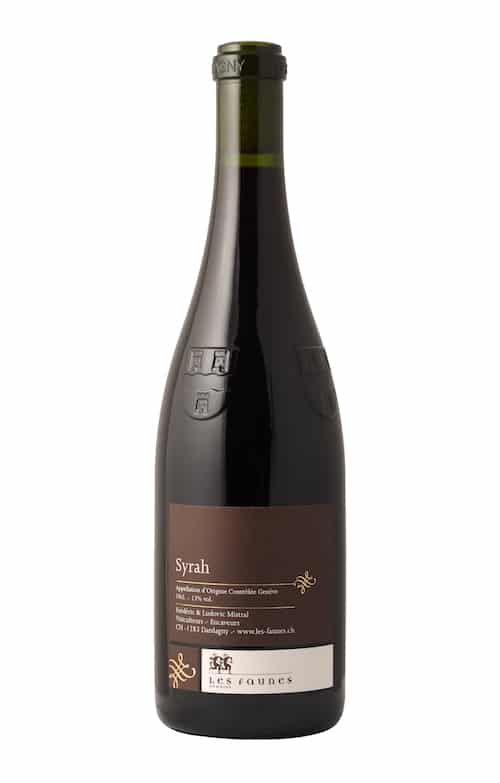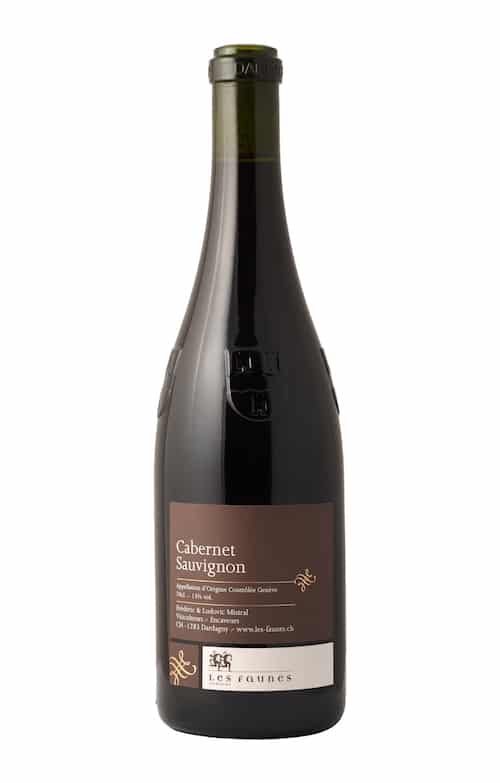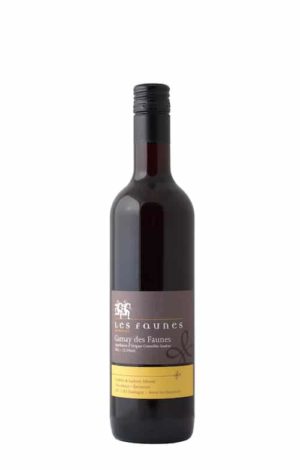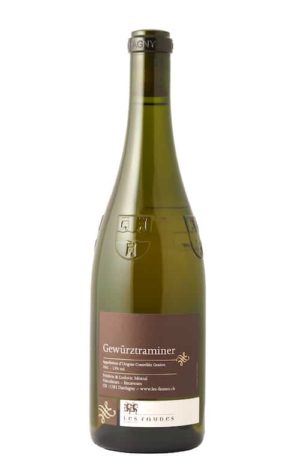Red wines
Gamay Les Faunes
The Gamay is a grape of French origin, mainly grown in the Beaujolais region. It comes from a cross between Pinot Noir and Gouais . In Switzerland, it is present in Geneva as well as Vaud and Valais. A rather productive vine, it requires more work in the vineyard to control its growth. Clusters of Gamay are usually quite large but the berries are of medium size. It produces warm and fruity wines. In Geneva, Gamay represents a total area of 368 ha or 27.5% of the all vineyard area.
Tasting:
Bouquet: Red fruit is dominant with notes of blackcurrant and raspberry.
Palate: Well balanced and fresh in the mouth it recalls the aromas of red fruit experienced in the bouquet.
Accompagnies:
Gamay produced in our style of vinification lends itself well to summer aperatifs. It is often drunk with charcuterie, or terrines and pâtés.
Pinot Noir Les Faunes
In general these are pale coloured wines, low in tannins but very delicate. The culture of this variety is difficult because the vine is prone to many different diseases. It requires a lot of care by the vigneron and perhaps a bit of sympathy from Mother Nature!
Tasting:
Bouquet: primary notes are cherry and blackberry.
Palate: Pinot gives more delicate wines than Gamay, with aromas of cherry. Tannins are present but not overpowering.
Accompagnies:
White meat, lamb, duck or grilled red meats.
Gamaret
The Gamaret is a relatively new grape in the world of viticulture. Created in 1970 at the Federal Research Station for Pully, as a cross between Gamay and Reichtensteiner (white grape of German origin). It was first used as a blending wine, but its virtues as a varietal in its own right were quickly recognised. It was in the early 1990s that in began to become well established in the Geneva region. Its “cousin” Garanoir is also from the same grape cross.
Tasting:
Bouquet: Red and black fruits such cherry and raspberry. Some spices, with slight woody notes and caramel.
Palate: The wine is full bodied, the some tannins present but not overpowering. A hint of wood is also present but does not mask the fruit flavours.
Accompagnies:
Gamaret is a gastronomic red wine which goes marvellously with red meats as well as game dishes.
Merlot
Merlot, although its origin is probably French, can be considered an international grape because it is also grown in Italy, Switzerland and in many other regions throughout the world. Present in Geneva for several decades, it is particularly well adapted to our climate. It gives tannic wines, but more muted than the Cabernets. Generally quite intensely coloured, it shows beautiful shades of red and purple. Merlot behaves well both to normal vinification in vats or to barrel aging. Our Merlot is aged in oak casks to fully develop its bouquet of complex wood aromas , but also to somewhat mellow the tannins.
Tasting:
Bouquet: Fresh with a mix of red and black fruits.
Palate: The taste is full bodied, with the tannins still very present, especially in young wine.
Accompagnies:
Leg of lamb, grilled pork ribs, beef ribs, wild hare.
Syrah
The origin of the grape is uncertain but it could come from either Greece or Cyprus. Syrah is planted around the world, for instance, it is known as “Shiraz” in South Africa. Closer to home, the Syrah is emblematic of the Northern Rhône region. Recently planted in Switzerland, it can be found in the Valais and Geneva. The Geneva vineyards tend to emphsise the fruity aspect of Syrah wines, so they are a bit less rounded than the Cotes du Rhone wines. Our Syrah is aged in oak barrels for 10 to 12 months to develop its spicy aromas of toasted oak.
Tasting:
Bouquet: Typical peppery notes of Syrah are present but it is the fruit that dominates.
Palate: Albeit with a pronounced tannic note, this Syrah remains light and fresh.
Accompagnies:
Spiced chicken, tapas, strong cheeses, and grilled lamb.
Cabernet Sauvignon
The Cabernet Sauvignon is a French grape, best known in the Bordeaux region. Introduced a few years ago in Switzerland, it gives very good results in warm years because it is a very late maturing grape in our climate. Because of this, we do not produce this wine every year. It provides strongly coloured tannic wines.
Tasting:
Bouquet: Red fruit, coffee, mint and spices.
Palate: Tannic. A note of woodland is still present in young wine, and there are hints of cassis.
Accompagnies:
Lamb shoulder, lamb, all types of game.

